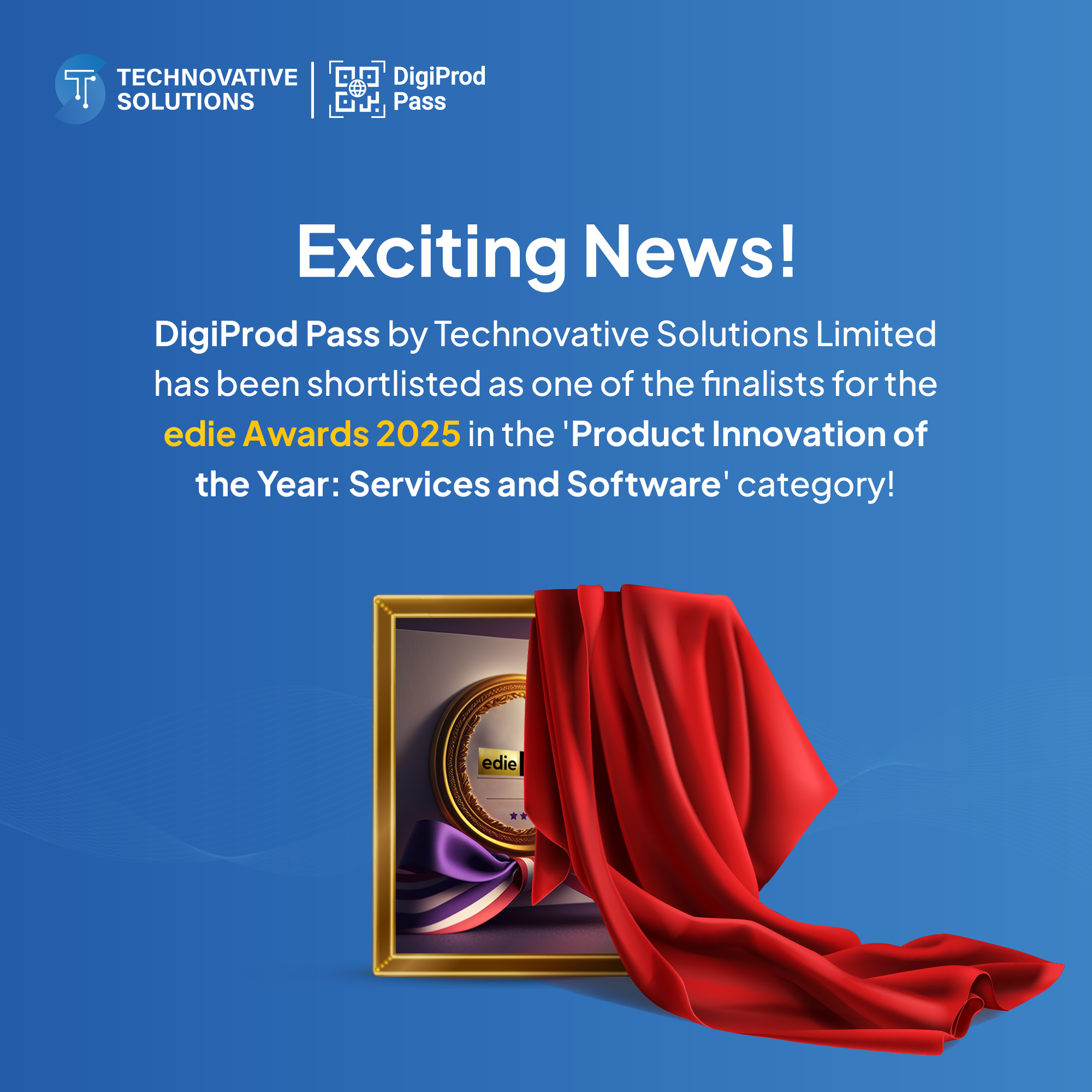Improving Customer Trust with Traceability
Improving Customer Trust with Traceability
Improving customer trust with traceability is a major goal for manufacturers to let customers make informed decisions. For instance, a skincare shopper will not just be satisfied with the words “cruelty-free” or “paraben-free” on the product’s label. They enquire about the ingredients’ collection source and production methods, packaging and so on. They would prefer products that are more eco-friendly, sustainable, and authentically documented.
That’s the kind of clarity today’s customers demand. They want to know that the products they invest in are ethical, responsibly sourced, and handled with care. Brands that embrace this openness don’t just sell goods; they build a story, a relationship, and above all, trust. In a world flooded with options, supply chain transparency isn’t a nice-to-have; it makes the difference between a one-time buyer and a lifelong supporter. Let’s explore how traceability in the supply chain builds customers’ trust.
Modern Tools That Boost Supply Chain Transparency
Old-fashioned trust is now backed up by very modern digital tools. Blockchain technology creates a digital record of each step in a product’s journey. Once it’s there, no one can tamper with it. IoT trackers can follow goods in real time, right from the factory gates to the shop floor.
For customers, that means they could scan a code and see where their shirt’s been, who handled it, and how it got to them. For brands, it means proof; proof that their promises are real.
How Transparency Tells Your Brand’s Story
Of course, transparency only works if the truth is worth showing. That’s why ethics and sustainability sit at the heart of it. Whether it’s Fairtrade cotton, Soil Association Organic certification, or partnerships with local suppliers, these details aren’t just marketing; they’re evidence of values in action.
Some high-street brands now publish the names and locations of every factory they work with. It’s a bold move, but it says, “We’ve got nothing to hide.” And customers respond to that. They don’t just buy; they believe.
Brands that provide untrue information can no longer be on the shopping list since greenwashing is completely under check with the digitised version of the tracing system. Products without a passport are out of the talk, so complying with roles and the new normal is the way to success.
Communicating Transparency Effectively
If you’re going to be transparent, don’t bury it in a dry report no one will read. Tell it like a story. Show the farmer tending the crops, the machinist at work, the journey from field to fashion, or, if you’re in another industry like automobile, use tools like a battery passport or digital product passport to trace and share your product’s journey. Make it real. Make it personal. In the market of growing competition, Traceability makes it easier for you to express your authenticity and commitment to serve loyally.
Supply chain transparency is all about smart data sharing. A Digital Product Passport (DPP) is the perfect tool for this, allowing brands to share vital details with customers, regulators, and partners, all while sticking to EU rules. A significant advantage of a DPP is its ability to protect sensitive information while keeping everything transparent. When done right, a DPP builds trust, gets everyone on board, and shows a brand’s dedication to honesty and compliance.
How DigiProd Pass Supports Traceability and Trust
Taking Digital Product Passport services, brands can give each product a verified digital identity, making it fully transparent and traceable according to EU regulations. Customers, regulators, and supply chain partners can access information about a product’s origin, composition, and environmental impact, building trust and supporting circular economy goals.
Building Long-Term Trust Through Transparency
When you commit to transparency, you’re playing for more than quick sales. You’re building trust. You’re planting the seeds of loyalty. You’re creating a reputation that can handle bad days and market dips.
In a world overflowing with choices, being open is your competitive edge. Let people see the story behind what you sell, and they’ll come back, not just for the product, but for the honesty that came with it.
Improving customer trust with traceability is a major goal for manufacturers to let customers make informed decisions. For instance, a skincare shopper will not just be satisfied with the words “cruelty-free” or “paraben-free” on the product’s label. They enquire about the ingredients’ collection source and production methods, packaging and so on. They would prefer products that are more eco-friendly, sustainable, and authentically documented.
That’s the kind of clarity today’s customers demand. They want to know that the products they invest in are ethical, responsibly sourced, and handled with care. Brands that embrace this openness don’t just sell goods; they build a story, a relationship, and above all, trust. In a world flooded with options, supply chain transparency isn’t a nice-to-have; it makes the difference between a one-time buyer and a lifelong supporter. Let’s explore how traceability in the supply chain builds customers’ trust.
Modern Tools That Boost Supply Chain Transparency
Old-fashioned trust is now backed up by very modern digital tools. Blockchain technology creates a digital record of each step in a product’s journey. Once it’s there, no one can tamper with it. IoT trackers can follow goods in real time, right from the factory gates to the shop floor.
For customers, that means they could scan a code and see where their shirt’s been, who handled it, and how it got to them. For brands, it means proof; proof that their promises are real.
How Transparency Tells Your Brand’s Story
Of course, transparency only works if the truth is worth showing. That’s why ethics and sustainability sit at the heart of it. Whether it’s Fairtrade cotton, Soil Association Organic certification, or partnerships with local suppliers, these details aren’t just marketing; they’re evidence of values in action.
Some high-street brands now publish the names and locations of every factory they work with. It’s a bold move, but it says, “We’ve got nothing to hide.” And customers respond to that. They don’t just buy; they believe.
Brands that provide untrue information can no longer be on the shopping list since greenwashing is completely under check with the digitised version of the tracing system. Products without a passport are out of the talk, so complying with roles and the new normal is the way to success.
Communicating Transparency Effectively
If you’re going to be transparent, don’t bury it in a dry report no one will read. Tell it like a story. Show the farmer tending the crops, the machinist at work, the journey from field to fashion, or, if you’re in another industry like automobile, use tools like a battery passport or digital product passport to trace and share your product’s journey. Make it real. Make it personal. In the market of growing competition, Traceability makes it easier for you to express your authenticity and commitment to serve loyally.
Supply chain transparency is all about smart data sharing. A Digital Product Passport (DPP) is the perfect tool for this, allowing brands to share vital details with customers, regulators, and partners, all while sticking to EU rules. A significant advantage of a DPP is its ability to protect sensitive information while keeping everything transparent. When done right, a DPP builds trust, gets everyone on board, and shows a brand’s dedication to honesty and compliance.
How DigiProd Pass Supports Traceability and Trust
Taking Digital Product Passport services, brands can give each product a verified digital identity, making it fully transparent and traceable according to EU regulations. Customers, regulators, and supply chain partners can access information about a product’s origin, composition, and environmental impact, building trust and supporting circular economy goals.
Building Long-Term Trust Through Transparency
When you commit to transparency, you’re playing for more than quick sales. You’re building trust. You’re planting the seeds of loyalty. You’re creating a reputation that can handle bad days and market dips.
In a world overflowing with choices, being open is your competitive edge. Let people see the story behind what you sell, and they’ll come back, not just for the product, but for the honesty that came with it.
Related News
All Catagories
Follow us


